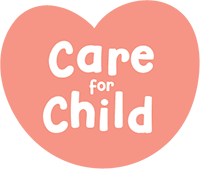During the third trimester of pregnancy, proper third trimester nutrition and third trimester foods are vital for both the mother and baby's health and development. This stage marks the final stretch of pregnancy, characterised by significant growth and development for the baby and various physical changes for the mother. Adequate third trimester foods during this period supports the baby's continued growth, ensures maternal health and well-being, and prepares the body for labour and delivery.
Key Nutrients Of Third Trimester Nutrition:
- Protein: Protein is essential for the baby's growth and development during the third trimester. It plays a crucial role in building and repairing tissues, producing enzymes and hormones, and supporting the immune system. Pregnant women should aim to consume approximately 71 grams of protein per day during the third trimester to meet the increased demands of pregnancy. Good protein sources include lean meats, poultry, fish, eggs, dairy products, legumes, nuts, and seeds. Incorporating various protein-rich foods into meals and snacks throughout the day ensures that the mother and baby receive adequate protein intake.
- Calcium: Calcium is vital for the baby's bone development and growth, especially during the third trimester when bone mineralization is accelerated. Pregnant women require approximately 1,000 milligrams of calcium daily during the third trimester to support maternal and foetal calcium needs. Dairy products such as milk, yoghurt, and cheese are excellent sources of calcium. Other sources include fortified plant-based milk alternatives, leafy green vegetables (such as kale and spinach), tofu, almonds, and sardines with bones. Including calcium-rich foods in the diet helps ensure optimal bone health for both the mother and baby.
- Iron: Iron is critical in preventing anaemia and supporting blood production during pregnancy, especially during the third trimester when blood volume increases significantly. Pregnant women need approximately 27 milligrams of iron daily during the third trimester to meet the body's increased demands. Good dietary sources of iron include lean red meat, poultry, fish, fortified cereals, legumes, tofu, spinach, and dried fruits such as apricots and raisins. Pairing iron-rich foods with sources of vitamin C, such as citrus fruits, bell peppers, and strawberries, can enhance iron absorption in the body.
- Omega-3 Fatty Acids: Omega-3 fatty acids, particularly docosahexaenoic acid (DHA), play a crucial role in foetal brain and eye development during the third trimester. These essential fatty acids support the baby's cognitive function, vision, and nervous system development. Good dietary sources of omega-3 fatty acids include fatty fish such as salmon, mackerel, sardines, walnuts, flaxseeds, chia seeds, and hemp seeds. Including omega-3-rich foods in the diet promotes optimal brain and eye development in the baby during the third trimester.
- Vitamin D: Vitamin D is essential for calcium absorption and bone health in the mother and baby during pregnancy. Adequate vitamin D intake is necessary during the third trimester when the baby's bones rapidly develop. Sunlight exposure is a natural source of vitamin D, but dietary sources include fortified foods such as milk, orange juice, cereal, fatty fish, eggs, and mushrooms. Pregnant women should aim to consume approximately 600 international units (IU) of vitamin D per day during the third trimester to support maternal and foetal bone health.
Dietary Recommendations:
- Eat Small, Frequent Meals: During the diet plan for third trimester of pregnancy, the growing baby puts pressure on the mother's stomach, which can lead to feelings of fullness and discomfort. Eating small, frequent meals throughout the day can help alleviate these symptoms and maintain steady energy levels. Snacking on a diet plan for third trimester of pregnancy such as fruits, vegetables, nuts, and yoghurt between meals can also provide additional nutrients and support optimal maternal and foetal health.
- Include a Variety of Nutrient-Rich Foods: A diverse and balanced diet plan for third trimester of pregnancy is essential for meeting the increased nutritional needs of pregnancy during the third trimester. Focus on incorporating nutrient-rich foods into meals and snacks, including fruits, vegetables, whole grains, lean proteins, dairy products, and healthy fats. Eating a rainbow of colours ensures you receive a wide range of vitamins, minerals, and antioxidants necessary for maternal and foetal health.
- Stay Hydrated: Staying hydrated is essential during pregnancy, especially during the third trimester when blood volume increases and the body's fluid needs are higher. Pregnant women should aim to drink plenty of water throughout the day to prevent dehydration and support overall health and well-being. In addition to water, other hydrating beverages such as herbal tea, coconut water, and infused water can contribute to fluid intake.
- Limit Intake of Processed Foods and Sugary Snacks: During the third trimester pregnancy diet, it's crucial to prioritise nutrient-dense foods that provide essential vitamins, minerals, and antioxidants for maternal and foetal health. Limiting the intake of processed foods, sugary snacks, and beverages high in added sugars can help prevent excessive weight gain, gestational diabetes, and other pregnancy-related complications. Instead, focus on whole, minimally processed foods that nourish the body and support optimal pregnancy outcomes.
- Discuss Dietary Concerns with Healthcare Providers: Every pregnancy is unique, and individual dietary needs may vary based on age, weight, medical history, and lifestyle. It's essential to discuss any dietary concerns or restrictions with your healthcare provider during prenatal visits. Your healthcare provider can provide personalised nutritional recommendations and guidance based on your specific needs and circumstances, ensuring that you and your baby receive the necessary nutrients during pregnancy.
Sample Diet Plan For Third Trimester of Pregnancy:
|
Meal Type |
Third Trimester Pregnancy Diet |
|
Breakfast |
|
|
|
|
|
|
Snacks |
|
|
|
|
|
|
Lunch |
|
|
|
|
|
|
Dinner |
|
|
|
|
Important Tip: Discover a game-changer for mealtime messes! Introducing SuperBottoms Waterproof Cloth Bibs for Babies – your go-to solution for stylish and functional feeding. Designed to keep your little one dry and comfortable, these bibs are a must-have post-birth. Embrace eco-friendly parenting with SuperBottoms Newborn UNO Cloth Diapers, perfect for containing spills and accidents while keeping your baby snug. And don't forget XtraHydrating Wet Wipes, your essential ally for keeping baby clean and surfaces spotless. Say hello to stress-free feeding sessions and a happier, mess-free journey with your little one!
Key Takeaways:
- Maintaining a balanced and nutritious third trimester pregnancy food chart during the third trimester of pregnancy is not just important; it's reassuring.
- It supports the baby's growth and development, ensures your health and well-being, and prepares your body for labour and delivery, giving you confidence in your pregnancy journey.
- To promote a healthy pregnancy and optimal outcomes for both mother and baby, focus on consuming a variety of third trimester foods, third trimester nutrition, staying hydrated, and discussing any third trimester pregnancy food chart concerns with your healthcare provider.
FAQs:
Q1: Why is nutrition important during the third trimester of pregnancy?
Ans. Nutrition is crucial in supporting the baby's growth and development, maintaining maternal health, and preparing the body for labour and delivery. Adequate intake of essential nutrients during this stage is vital for optimal 3rd trimester pregnancy diet outcomes.
Q2: What are some essential nutrients to focus on during the third trimester?
Ans. During the 3rd trimester pregnancy diet, essential nutrients include protein, iron, calcium, omega-3 fatty acids, folate, vitamin D, and fibre. These nutrients support foetal growth, bone development, and maternal well-being.
Q3: How many additional calories should I consume during the third trimester?
Ans. Your calorie needs during the third trimester are unique to you, depending on factors such as pre-pregnancy weight, activity level, and overall health. Generally, an additional 450 extra calories per day are recommended during this stage, but your healthcare provider can provide personalised advice


